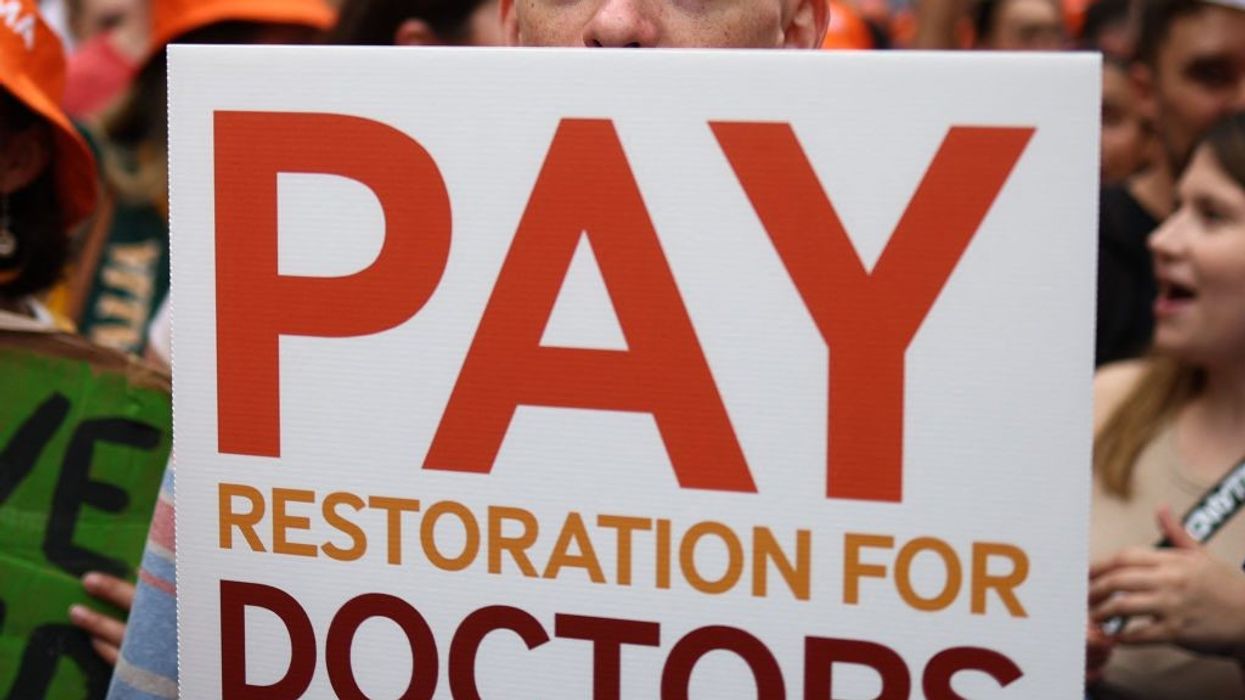SENIOR NHS doctors in England will strike for three consecutive days during the ruling Conservative Party's annual conference in October, the British Medical Association (BMA) said in a statement to Reuters on Thursday.
The strikes from Oct. 2-4 would be the longest period of action so far, the BMA said.
"Consultants are clear that they're prepared to take regular action and politicians must be left in no doubt that our dispute will not go away simply because they refuse to negotiate," BMA consultants committee chair Vishal Sharma said.
On Aug. 7, senior doctors announced their plan to strike in September unless the government agreed to more pay negotiations. Consultant-level doctors in Britain's publicly funded health service are set to go on strike on Sept. 19 and 20.
Junior doctors in England also walked out for four days from Aug. 11-15, in their fifth round of strikes in the long-running pay dispute with the government.
The NHS has been disrupted by healthcare workers walking out in demand of pay rises to cope with record inflation. British Prime Minister Rishi Sunak last month said, however, that "no amount of strikes will change" the government's decision on public sector pay.
(Reuters)





